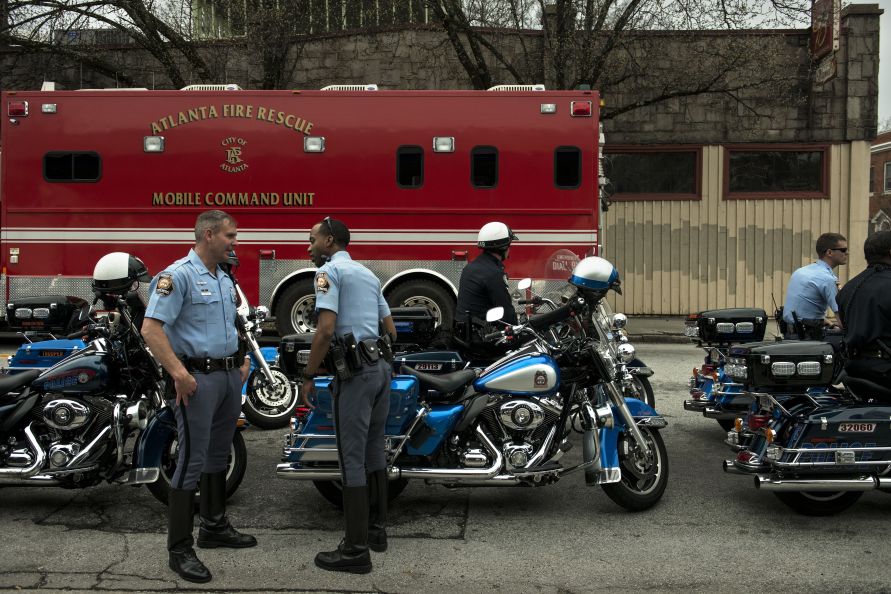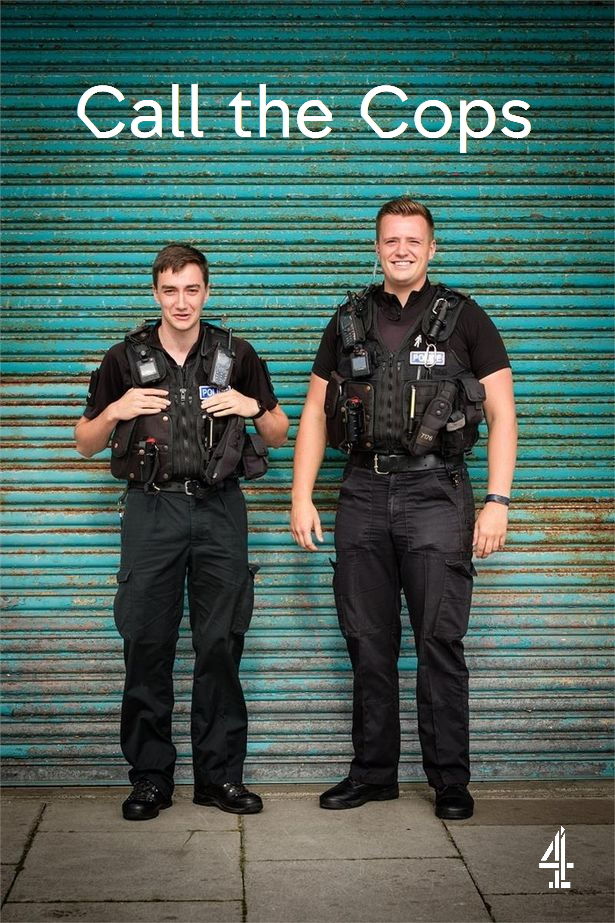Ever wondered why people call cops 12? It’s not just a random nickname—it’s a piece of slang with some interesting history behind it. From cop shows to everyday conversations, this term has found its way into popular culture. But what does it really mean? Let’s dive into the world of police slang and uncover the truth behind why cops are sometimes referred to as "12." Trust me, it’s more fascinating than you think.
Language evolves, and so does the way we refer to certain professions. For law enforcement, slang terms have been around for decades, each one carrying its own story. Whether you’ve heard it on the streets or seen it in movies, the term "12" is one of those phrases that stick. So, why exactly do people call cops 12? There’s a method to the madness, and we’re about to break it down for you.
Before we get into the nitty-gritty, let’s set the stage. This isn’t just about a random number. It’s about understanding the culture, the history, and the context in which this term was born. By the end of this article, you’ll have a clearer picture of why people call cops 12 and how it fits into the broader landscape of police slang. Ready? Let’s go!
Read also:What Awards Has Sam Elliott Won Throughout His Career A Deep Dive Into His Achievements
What Does "12" Mean in Police Slang?
Alright, let’s start with the basics. When people say "12," they’re usually referring to law enforcement officers. But why this specific number? Well, it all comes down to communication codes. Back in the day, police officers used 10-codes to simplify radio communication. "10-12" was a code used to indicate "presence" or "suspicious person." Over time, the "10" part got dropped, and "12" stuck as a shorthand for cops.
Now, this isn’t just a random thing. It’s part of a larger system of codes that officers used to streamline their communication. Think of it like a secret language that only insiders understood. While the use of 10-codes has declined in recent years, the term "12" has persisted in popular culture and everyday language.
How Did the Term "12" Become Popular?
The popularity of "12" can be traced back to a few key factors. First, it’s short and easy to remember. Second, it’s been reinforced by media, especially in movies and TV shows. Think about it—how many times have you heard someone say, "The 12s are coming!" in a cop drama? It’s catchy, and it sticks in people’s minds.
Another reason is its use in music. Hip-hop and rap artists have frequently referenced "12" in their lyrics, often as a nod to law enforcement presence. This has helped the term gain even more traction in mainstream culture. So, whether you’re watching a movie or listening to a song, you’re likely to come across this term.
The History of Police Slang: Where It All Began
Police slang isn’t new—it’s been around for as long as law enforcement has existed. In the early days, officers needed a way to communicate quickly and efficiently without giving away too much information. This led to the creation of various codes and terms that only those in the know could understand.
One of the earliest examples of police slang is the use of "cop" itself. Short for "constable on patrol," it became a widely recognized term for law enforcement officers. Over time, other terms like "12," "five-oh," and "the heat" entered the lexicon, each with its own unique origin story.
Read also:Eric Roberts Young A Rising Star In The Entertainment World
Why Do People Use Slang for Law Enforcement?
Slang serves a few important purposes when it comes to law enforcement. For one, it creates a sense of camaraderie among those who use it. It’s like having a secret handshake or code word that only certain people understand. Additionally, slang can help diffuse tension in situations where direct language might escalate things.
Of course, not everyone uses slang for law enforcement in a positive way. Some terms, like "12," have been adopted by communities as a way to warn others about police presence. This highlights the complex relationship between law enforcement and the communities they serve.
Common Variations of "12" in Police Slang
While "12" is one of the most well-known terms for cops, it’s not the only one. There are plenty of other variations that you might come across. Here are a few examples:
- Five-Oh: A term popularized by TV shows like "Hawaii Five-0."
- The Heat: Often used in hip-hop and rap music.
- Pigs: A controversial term that’s been around since the 1960s.
- The Man: A more general term for authority figures.
Each of these terms has its own history and connotations, and they’re often used in different contexts. Whether you’re watching a movie or having a conversation, you’re likely to encounter at least one of these variations.
Why Do Different Communities Use Different Terms?
The use of slang for law enforcement can vary widely depending on the community. For example, in some neighborhoods, "12" might be used as a warning to be cautious. In others, it might be used more casually, without any negative connotations. This reflects the diverse ways in which people interact with law enforcement and the varying levels of trust that exist between communities and officers.
The Role of Media in Popularizing Police Slang
Media plays a huge role in shaping the way we think about law enforcement and the language we use to describe it. From movies to TV shows to music, popular culture has a way of amplifying certain terms and making them part of everyday conversation.
Take "12," for example. It’s been featured in countless films and TV series, often as a way to add authenticity to the portrayal of law enforcement. When actors say, "The 12s are coming," it sounds more realistic and grounded than simply saying, "The police are here." This kind of authenticity is what makes slang terms like "12" so appealing to audiences.
How Movies and TV Shows Influence Our Perception of Cops
While media can help popularize terms like "12," it can also shape our perception of law enforcement in other ways. For example, cop dramas often depict officers as heroes who are always on the side of justice. This can create a skewed view of reality, where the complexities of policing are overlooked in favor of a more simplistic narrative.
On the other hand, some films and shows take a more critical approach, highlighting the challenges and controversies surrounding law enforcement. This can lead to a more nuanced understanding of the role that cops play in society and the language we use to describe them.
The Impact of Slang on Law Enforcement Perception
Slang isn’t just about language—it’s about perception. The terms we use to describe law enforcement can influence how we view them and their role in our communities. For example, terms like "12" and "five-oh" might seem neutral to some, but to others, they carry negative connotations.
This is where things get tricky. While slang can create a sense of camaraderie among certain groups, it can also create barriers between law enforcement and the communities they serve. It’s important to be mindful of the language we use and the impact it can have on others.
Can Slang Help Bridge the Gap Between Cops and Communities?
There’s no easy answer to this question. On one hand, slang can help break down barriers by creating a shared language that both cops and community members can understand. On the other hand, it can reinforce stereotypes and deepen existing divides.
The key is to use language thoughtfully and intentionally. Whether you’re a cop or a community member, being aware of the terms you use and the impact they can have is an important step toward building trust and understanding.
Conclusion: Why Do People Call Cops 12?
So, why do people call cops 12? It’s a combination of history, culture, and communication. From its roots in police codes to its popularity in media and everyday language, the term "12" has become a staple in the world of police slang. But it’s more than just a word—it’s a reflection of the complex relationship between law enforcement and the communities they serve.
As we’ve explored in this article, slang plays a big role in shaping our perception of law enforcement. Whether you’re using terms like "12" casually or critically, it’s important to be mindful of the language you choose and the impact it can have on others. So, the next time you hear someone say, "The 12s are coming," take a moment to think about the story behind that simple phrase.
And hey, don’t forget to share this article with your friends! The more we talk about these topics, the better we can understand each other. Who knows—maybe you’ll even learn a new slang term or two along the way.
Table of Contents
- What Does "12" Mean in Police Slang?
- The History of Police Slang: Where It All Began
- Common Variations of "12" in Police Slang
- The Role of Media in Popularizing Police Slang
- The Impact of Slang on Law Enforcement Perception
- Conclusion: Why Do People Call Cops 12?
References
For more information on police slang and its history, check out these sources:



